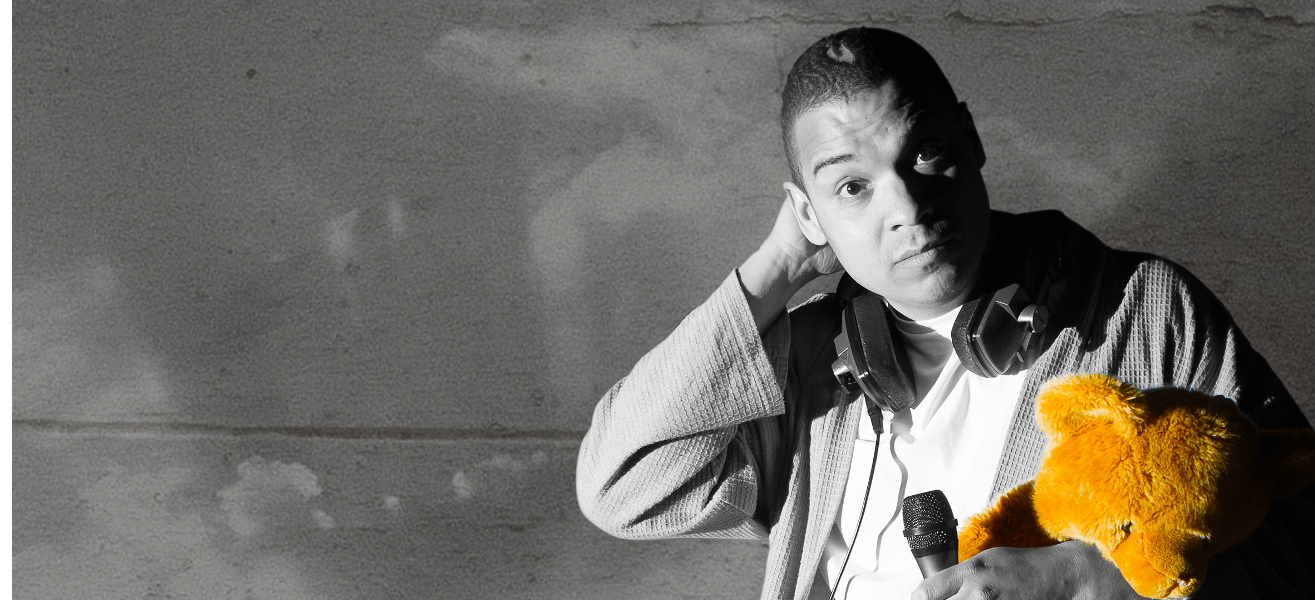In a mesmerising blend of beatbox, rap, spoken word and soliloquy, Testament (Andy Brooks) brings together hip hop and feminism. The show is self-aware, ironic, and painfully honest. It’s an example of how much can be done with a one-man show; in this case, an important account of one person’s realisation that they themselves – as we all can be – are part of a system of oppression, and their struggles to take action.
From the outset, Brooks draws attention to how commonplace sexist humour still is. It takes a moment for jokes about how he assumes his young daughter will be into Barbies and Topshop to click into place; these could easily slide under the radar, but are an important in showing an insidious problem in society. He points out that it is all too common that people get branded a “feminazi” or a “social justice warrior” in order to invalidate these issues.
The shows draws attention to how being “woke” – being able to understand society’s network of oppression, and never making any kind of oversight – is virtually impossible. You can be on the way to becoming woke, but it is a journey, a process of picking apart your automatic prejudices and understanding that everyone, including yourself, is a part of the system.
In a very honest admission, he realises his own prejudices and “addiction to sexism”. This attitude of self-assessment is one that society needs more of. It is so easy to point the finger at someone else, he says, and not look at yourself and understand where you are going wrong. Consequently, you are left with the urge to reassess your own behaviour. ‘Woke’ is about journey and the adjustments. You cannot just “tut at certain things”, as he points out. In this way, Brooks was totally inspiring.
But it’s the musical elements that Brooks slips into the performance that are the real highlight. One was a hard-hitting mash-up of what is heard and seen whilst flicking through television channels, which Brooks performs by layering his own voice with a recording machine and beatboxing. As if this wasn’t enough, he uses this to point out the commonplace sexism and toxic masculinity which permeate the media and society. While there is a lot of humour, the underlying anger which is exuded is infectious.
Brooks avoids, however, seeming as if he believes he knows all about what is best for women. He emphasises the importance of a willingness to learn. He points out that it’s a huge elephant in the room (in fact a “whole safari”), that he is performing a one-man show about feminism. To address this, he opens the floor to self-identifying females in the audience and asks for advice. He then takes these female voices, and improvises a hip hop song made of their words, subverting the problematic nature of classic hip-hop music. It is spine-tingling. You will leave feeling moved, pumped and hopefully a bit more woke than you were when you walked in.
Chloe-Louise Saunders

